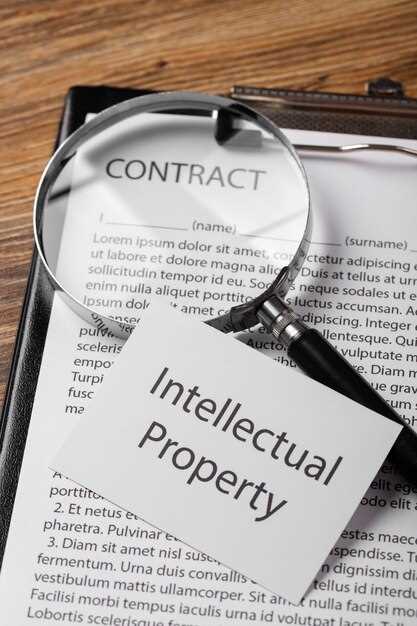Essential Legal Insights for Successful Commercial Property Transactions
Engaging in real estate transactions can be a daunting endeavor, filled with various intricacies that require careful consideration. Whether you are seeking to secure a new space for your business or exploring options for temporary occupancy, understanding the landscape is vital. Each decision made can significantly impact your financial future and operational success. Industry jargon can often be overwhelming, but grasping the essential components aids in demystifying the process.
Due diligence is paramount in these scenarios. It involves thorough research, assessing the property’s condition, and examining legal documentation. Every agreement will carry its nuances that can either benefit or hinder your objectives. Many individuals overlook the hidden complexities that come with these agreements, only realizing their importance when it’s too late.
The ramifications of poorly executed terms can lead to unexpected disasters. Legal nuances may seem trivial initially, but they often dictate the long-term viability of your decisions. Whatever path you choose, whether investing in a permanent establishment or considering a flexible agreement, having a sound understanding of the rules and regulations governing these types of arrangements is crucial to ensuring a successful venture. This framework not only provides clarity but also empowers you as a savvy participant in the market.
Essential Legal Insights for Commercial Real Estate

Navigating the complexities of real estate transactions can be daunting. Many buyers and renters overlook critical aspects. Knowledge of specific regulations and guidelines is crucial. A single oversight can lead to significant financial consequences. Understanding the rights and obligations involved makes all the difference.
Different documents carry varied importance. Lease agreements outline terms of occupancy but might hide pitfalls. Purchase contracts define ownership transfer yet can include ambiguous clauses. Investors must scrutinize each section carefully. The finer points often reveal underlying issues that could impact future dealings.
| Aspect | Description |
|---|---|
| Title Review | Ensures clear ownership and identifies any encumbrances or liens. |
| Environmental Assessments | Identifies potential hazards on the property that could incur liabilities. |
| Zoning Compliance | Verifies that the property aligns with local regulatory frameworks for intended use. |
| Due Diligence | Thoroughly investigating property conditions and legal standing prior to transactions. |
Thorough examination of documentation helps prevent unfavorable encounters. It’s advisable to involve legal professionals who specialize in real estate matters. They can identify potential pitfalls and offer actionable solutions tailored to specific needs. Moreover, understanding local market practices can provide a strategic advantage. Awareness of ongoing legal changes in real estate regulations is key for long-term success.
Understanding Commercial Property Transactions

When engaging in transactions involving real estate for business purposes, a myriad of factors come into play. It’s not merely about the exchange of capital for a physical space. Various elements shape the process, from negotiations to legal documentation. Each deal is unique and carries its own set of intricacies. These complexities can influence your investment’s success.
In essence, grasping the nuances of these dealings is crucial. The process demands careful consideration at every stage. Buyers and lessees alike should be prepared to navigate an array of challenges. This includes understanding the market, evaluating property conditions, and negotiating terms effectively. A well-informed approach ultimately leads to more favorable outcomes.
The combination of thorough research and strategic planning often makes a significant difference. Attention to detail is paramount. Regardless of your role in the transaction, knowing the landscape can empower you. This knowledge aids in avoiding common pitfalls that may arise. Ultimately, the goal is to secure a beneficial arrangement.
Contracts play a vital role, serving as the backbone of any deal. They outline responsibilities and outline expectations clearly. Without comprehensive documentation, misunderstandings can easily surface. Therefore, collaborating with knowledgeable professionals, such as real estate agents and attorneys, is highly advisable. Their expertise can guide you through the labyrinth of regulations and requirements.
The dynamic nature of real estate transactions means that adaptability is key. Being prepared to pivot as circumstances change is essential. Market fluctuations, legal updates, and property-specific issues could arise unexpectedly. Those who remain informed and flexible will find themselves better positioned to make sound decisions. In the end, understanding these processes fosters confidence and paves the way for fruitful ventures.
Types of Commercial Properties
When delving into the realm of real estate, it’s vital to grasp the various categories of assets one might encounter. Each type serves a distinct purpose and targets specific markets. They can range from bustling retail locations to serene office spaces, and even expansive industrial zones. Understanding these differences can significantly influence investment decisions, offering potential buyers and tenants a clearer picture of their options.
Retail spaces cater to businesses focused on direct consumer sales. They often include shopping centers, standalone boutiques, and restaurants, designed to attract foot traffic and maximize visibility. In contrast, office buildings serve businesses that operate from commercial premises. These properties can vary from high-rise towers in city centers to modest single-floor buildings in suburban areas.
In addition to retail and office environments, industrial properties represent a unique sector. These spaces include warehouses, manufacturing sites, and distribution centers, essential for businesses involved in production and logistics. Such properties are typically characterized by their functional designs, catering specifically to the operational needs of a company.
Apart from those, there are also mixed-use developments combining residential and commercial elements, providing versatility in usage and creating vibrant communities. Each category, with its specific characteristics, can significantly influence the dynamics of the local market.
Understanding these distinctions enables potential investors and lessees to make informed decisions that align with their strategic goals, ultimately leading to more successful ventures in the rich landscape of real estate.
Key Legal Terms and Definitions
Understanding the terminology associated with real estate transactions is vital for anyone looking to navigate the intricate world of commercial dealings. Familiarity with specific phrases can greatly affect decisions made during negotiations. Not only do these terms define the framework of agreements, but they also clarify the rights and responsibilities of each party involved. Awareness of these definitions allows for more informed considerations.
For instance, terms like “leasehold,” which refers to the interest held by a tenant under a lease, play a crucial role in outlining what is permitted and what is not. Similarly, “escrow” is a process whereby funds or documents are held by a third party until certain conditions are met, ensuring security for both the buyer and seller. Armed with knowledge about “due diligence,” the comprehensive appraisal of a property before finalizing a transaction, one can avoid potential pitfalls that may arise from lack of information.
When entering into negotiations, comprehending “commercial mortgage” becomes essential; this refers to a loan secured by a lien on commercial real estate. Additionally, the term “zoning” indicates the land-use regulations governing properties in various locations, which can significantly influence operational plans. Each of these phrases contributes to a clearer understanding of the landscape.
Ultimately, mastering these terms is not merely an academic exercise; it prepares individuals for the nuanced conversations and decisions required in real estate transactions. This knowledge empowers stakeholders to protect their interests and seize opportunities in a competitive market.
Steps in the Buying Process
Acquiring a commercial asset involves a series of strategic actions. Each phase plays a crucial role in ensuring that the transaction aligns with your objectives. Understanding these steps can facilitate a smoother journey through the complex landscape of real estate. Preparation is key, and careful consideration at each juncture can yield significant benefits.
First, establish your goals clearly. Determine the type of property you require. Your budget should also be defined early on. Next, conduct thorough market research to identify potential locations.
Once you have a list of suitable options, it’s time to engage a real estate professional. Their expertise can help you navigate through various listings. They will assist in analyzing market conditions, which is essential for informed decision-making. Financial considerations such as financing options and possible incentives should also be evaluated seriously before proceeding.
An essential step involves conducting due diligence on each candidate property. This includes reviewing legal documents, property history, and inspecting the physical state of the building. Ensure you are also aware of any zoning regulations that might apply to your intended use, as they can significantly impact your plans.
After narrowing down your choices, prepare an offer that reflects the property’s value and your budget. Be prepared to negotiate terms with the seller to reach a mutually agreeable arrangement. Involving a legal expert at this stage can safeguard your interests and clarify the contract details.
Finally, upon acceptance of your offer, finalize the transaction with adequate measures. This includes securing financing, completing inspections, and ensuring all legal documentation is in order. The culmination of these actions will pave the way for a successful acquisition, allowing you to proceed confidently into your new venture.
Due Diligence: What to Consider
Conducting thorough research before making significant commitments is crucial. This process involves examining various aspects of potential transactions. It helps identify risks and opportunities. Not every property is what it seems at first glance. Understanding key factors can save you both time and money.
Start by reviewing the financial records associated with the asset. Scrutinize lease agreements, payment histories, and occupancy rates. Evaluate operational expenses and any outstanding liabilities. Assessing these elements will provide you with a clearer picture of potential returns.
- Inspect the physical condition of the property.
- Verify zoning regulations and compliance with local laws.
- Research the market trends in the area.
- Check for any pending litigations or disputes.
- Inquire about the history of property management.
Each of these considerations plays a significant role in making informed decisions. Engaging professionals for appraisals and inspections can provide invaluable insights. Additionally, understanding environmental factors, such as flood risks or contamination, is essential for safeguarding your investment. Take the time to delve into each component carefully, as neglecting even minor details can lead to significant future challenges.
Navigating Lease Agreements Effectively

Entering a lease can be a complex undertaking. A well-structured contract can save you from future issues. It’s crucial to understand the fundamentals while reviewing documents. This section outlines key aspects to consider during this process.
- Terms of the lease should be clear and concise.
- Duration of the agreement is significant; take note.
- Identify who is responsible for maintenance and repairs.
- Clarify any restrictions on the use of the space provided.
Understanding all conditions laid out in the contract is vital because unforeseen complications can arise from vague language or ambiguous clauses, potentially leading to disputes or financial losses later on.
- Examine rental rates and possible increases over time.
- Review termination clauses to know your options.
- Negotiate terms if necessary for your specific needs.
- Seek professional advice from a real estate expert.
Pay attention to the surrounding area, as local amenities and infrastructure may directly affect your business operations and, in turn, your rent value.
- Verify compliance with local zoning laws.
- Assess the potential for expansion if required in the future.
- Inquire about any hidden fees that may not be listed upfront.
By taking these steps, you’ll be better prepared to navigate the intricacies of lease agreements, ensuring that you make informed decisions that align with your goals.
Components of a Lease Agreement
A well-crafted lease document serves as a cornerstone for any rental arrangement. It defines the relationship between the landlord and tenant. Each section plays a pivotal role in promoting clarity and minimizing disputes. Understanding these parts can help ensure a smooth transaction. Let’s delve into the various elements that comprise a lease.
The first key element is the description of the premises. This includes the complete address and specific details about the space being rented. Next comes the lease term, which outlines the duration of the agreement. This aspect specifies whether it is a short-term or long-term commitment.
Another critical component is the rental payment terms. These details indicate the amount due, payment intervals, and acceptable methods for remittance. Additionally, the agreement should clarify security deposit requirements and conditions for its return at lease conclusion. Responsibilities of both parties are usually defined, including maintenance obligations and utility payments.
Termination conditions outline what happens if either party wishes to end the arrangement prematurely. This often includes notice periods and acceptable reasons for early termination. Furthermore, permissible uses of the property are commonly stipulated to prevent unauthorized activities. This aspect serves to protect the landlord’s interests while ensuring tenant comfort.
In summary, the components of a lease document work together to create a comprehensive understanding between the involved parties. Each section is integral for establishing expectations. Paying close attention to all these elements can prevent future misunderstandings and foster a positive rental experience.
Understanding Tenant and Landlord Rights
When entering a rental arrangement, both parties possess specific entitlements that should be acknowledged. The dynamics between a tenant and a landlord can significantly impact the overall experience. Each side has responsibilities, expectations, and legal protections that must be understood to avoid potential disputes. Knowledge is power in such agreements.
Tenants generally have the right to a safe and habitable environment. They deserve privacy, respect, and the ability to occupy the space without undue interference. Conversely, landlords have the right to receive rent promptly and maintain their property. They can enforce rules that are clearly stated in the lease.
The intricacies of tenant and landlord rights can become quite complex. For example, tenants should be aware of their obligations regarding property maintenance to avoid jeopardizing their tenancy. Landlords must adhere to local regulations that govern the rental process, ensuring they do not infringe upon tenants’ rights while exercising their own. Disputes can arise if either party lacks clarity about their roles.
Ultimately, a thorough understanding cultivates a healthier relationship. Mutual respect and open communication are crucial in navigating the rental landscape. Engaging with legal professionals can provide invaluable guidance, ensuring awareness of specific rights and responsibilities. Clarity leads to harmony, enhancing the rental experience for all involved.
Common Lease Negotiation Tactics
Negotiating a lease can be an intricate process. It requires skill, strategy, and careful consideration. Many factors influence the final agreement. Each party aims to secure the best possible deal. Therefore, understanding effective techniques is vital for success.
First, always do your homework. Research the market rates and comparable spaces. Knowledge gives you leverage in discussions. This information allows you to make informed arguments. When negotiating, cite industry standards to strengthen your position.
Another key tactic is to understand the landlord’s motivations. Are they looking for long-term tenants? Or do they prefer flexibility? Knowing their goals helps you tailor your approach. Highlighting the benefits of your tenancy can create a win-win scenario.
Consider proposing adjustments that seem minimal, yet hold significant value, such as alterations to maintenance responsibilities or subtle changes to the overall lease duration. Such seemingly small suggestions can lead to major advantages and create goodwill during talks.
Employ patience throughout the negotiation journey. Rushing may result in unfavorable terms. Taking time shows confidence and seriousness. Don’t hesitate to ask for clarifications or additional time to review terms. This can often lead to more favorable conditions.
In addition, aim to establish rapport with the landlord. Building a relationship can lead to better cooperation. A positive atmosphere can encourage concessions. Sharing your vision or plans for the space may align interests more closely.
Don’t shy away from involving experts. Engaging lawyers or real estate professionals can provide invaluable guidance. These individuals can help you navigate complex terminology and protect your interests. Ultimately, their support can yield better outcomes.
Lastly, always be prepared to walk away. Knowing your limits empowers you during the talks. If terms do not meet your expectations, it’s crucial to have alternatives. This willingness can lead to better offers or help you find more suitable options elsewhere.
Video:
Top 3 Risks to Avoid When Buying Commercial Property to Rent Out!
Top 3 Risks to Avoid When Buying Commercial Property to Rent Out! by Ramana Reddy – Advocate 37 views 2 weeks ago 2 minutes, 57 seconds
Q&A:
What are the key legal considerations I should be aware of when purchasing commercial property?
When purchasing commercial property, several key legal considerations should be taken into account. Firstly, due diligence is essential; this includes reviewing title documents, zoning regulations, and any existing leases or encumbrances. It’s important to ensure that the property complies with local laws and that there are no pending legal issues, such as liens or disputes. Additionally, understanding the commercial property contract, including contingencies, warranties, and indemnity clauses, is crucial to protect your interests. Engaging a qualified attorney who specializes in real estate can help navigate these complexities and ensure that all legal aspects are covered.
How do lease agreements differ for commercial properties compared to residential leases?
Lease agreements for commercial properties differ significantly from residential leases in various ways. Generally, commercial leases are more complex and can vary widely based on negotiations between parties. Key differences include the length of the lease, which tends to be longer in commercial contexts (often 3 to 10 years or more), and the level of responsibility that falls on the tenant for property maintenance and repairs. Additionally, commercial leases may include various expense structures like triple net leases, where the tenant pays for property taxes, insurance, and maintenance costs. It’s important for tenants to thoroughly review and understand the terms of the lease, as commercial leases often have less regulatory oversight compared to residential leases.
What should I look for in a title report when buying commercial property?
A title report is a crucial document that provides information about the property’s ownership history and any legal claims against it. When reviewing a title report for commercial property, you should look for a few key elements. First, check for any liens or encumbrances, which can affect your ownership rights. It’s also important to verify that the seller has the legal right to sell the property. Ensure that there are no easements or restrictions that could impact your intended use of the property. Additionally, confirm that the property’s zoning aligns with your business plans. A clear title report is essential for confirming that you will have unencumbered ownership upon purchase, making it crucial to consult with a real estate attorney during this process.
What are common pitfalls to avoid when leasing commercial property?
When leasing commercial property, there are several common pitfalls that tenants should be aware of to avoid potential issues down the line. One of the biggest mistakes is not thoroughly reviewing the lease terms, particularly the fine print regarding rent increases, renewal options, and exit clauses. Another pitfall is neglecting to conduct proper due diligence on the property, which includes understanding zoning regulations and potential future developments in the area that may impact your business. Additionally, failing to negotiate the lease terms can lead to unfavorable conditions, such as excessive liabilities for property upkeep or inadequate protection against lease termination. It is advisable to engage a real estate attorney to help negotiate and draft the lease agreement, ensuring that it meets your business needs and mitigates potential risks.
How can I ensure compliance with local zoning laws when purchasing commercial property?
To ensure compliance with local zoning laws when purchasing commercial property, the first step is to conduct thorough research regarding the property’s zoning designation. Each property will be categorized under specific zoning laws that dictate what types of businesses can operate on site. You can obtain this information from your local zoning office or city planning department. It’s crucial to verify that your intended use for the property aligns with these regulations. If you’re planning a change of use, you may need to apply for a zoning variance or special permit, which can be a lengthy process. Consulting with a real estate attorney who is familiar with local zoning laws can also help guide you through the compliance process and address any legal issues proactively.
What are the key legal factors to consider when purchasing commercial property?
When purchasing commercial property, several key legal factors should be considered. First, it’s essential to conduct thorough due diligence, which includes a title search to verify ownership and check for any liens or encumbrances on the property. Additionally, purchasers should review zoning laws to ensure the property can be used for the intended purpose. It’s also vital to examine any existing leases or rental agreements if the property has tenants. Environmental assessments should be performed to uncover any potential liabilities related to hazardous materials. Finally, engaging a real estate attorney is advisable to navigate contracts, negotiate terms, and ensure compliance with all relevant laws.













